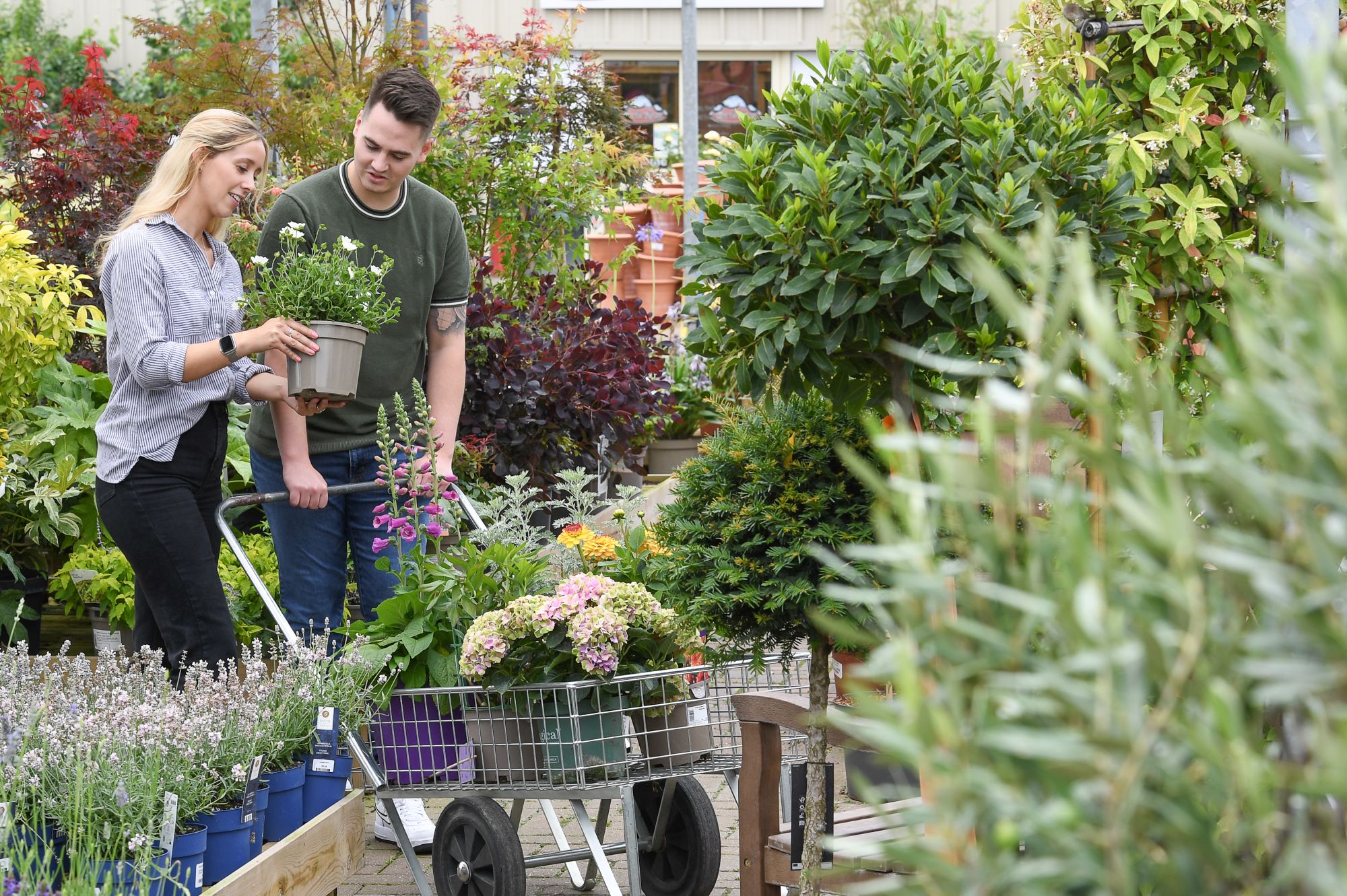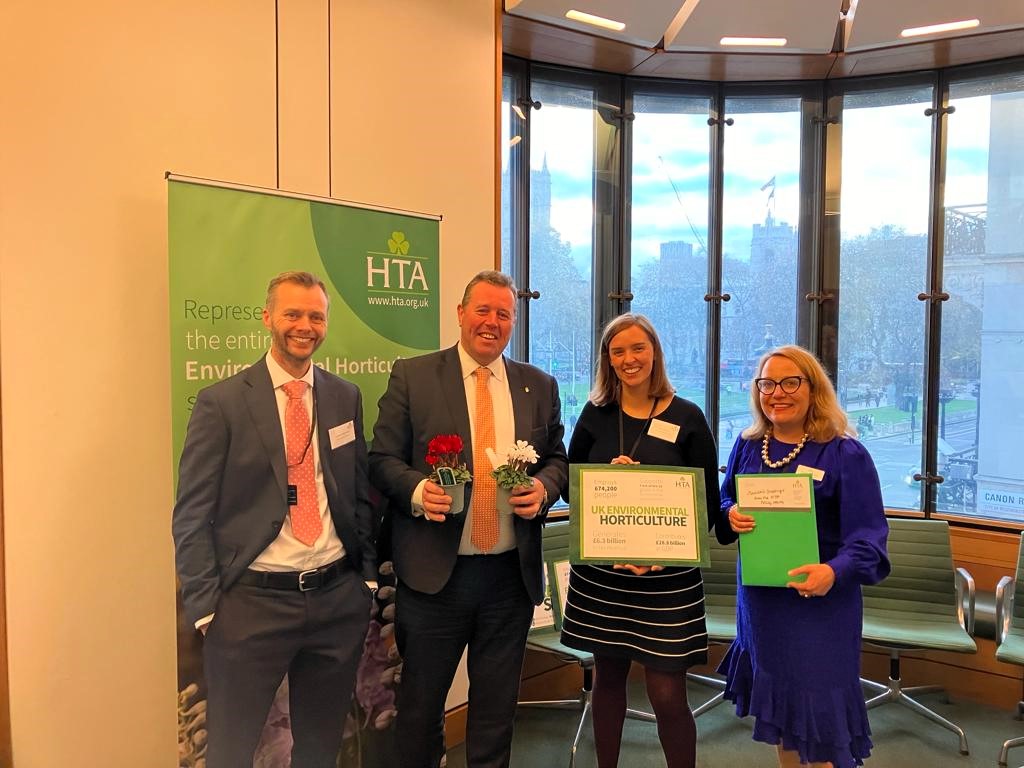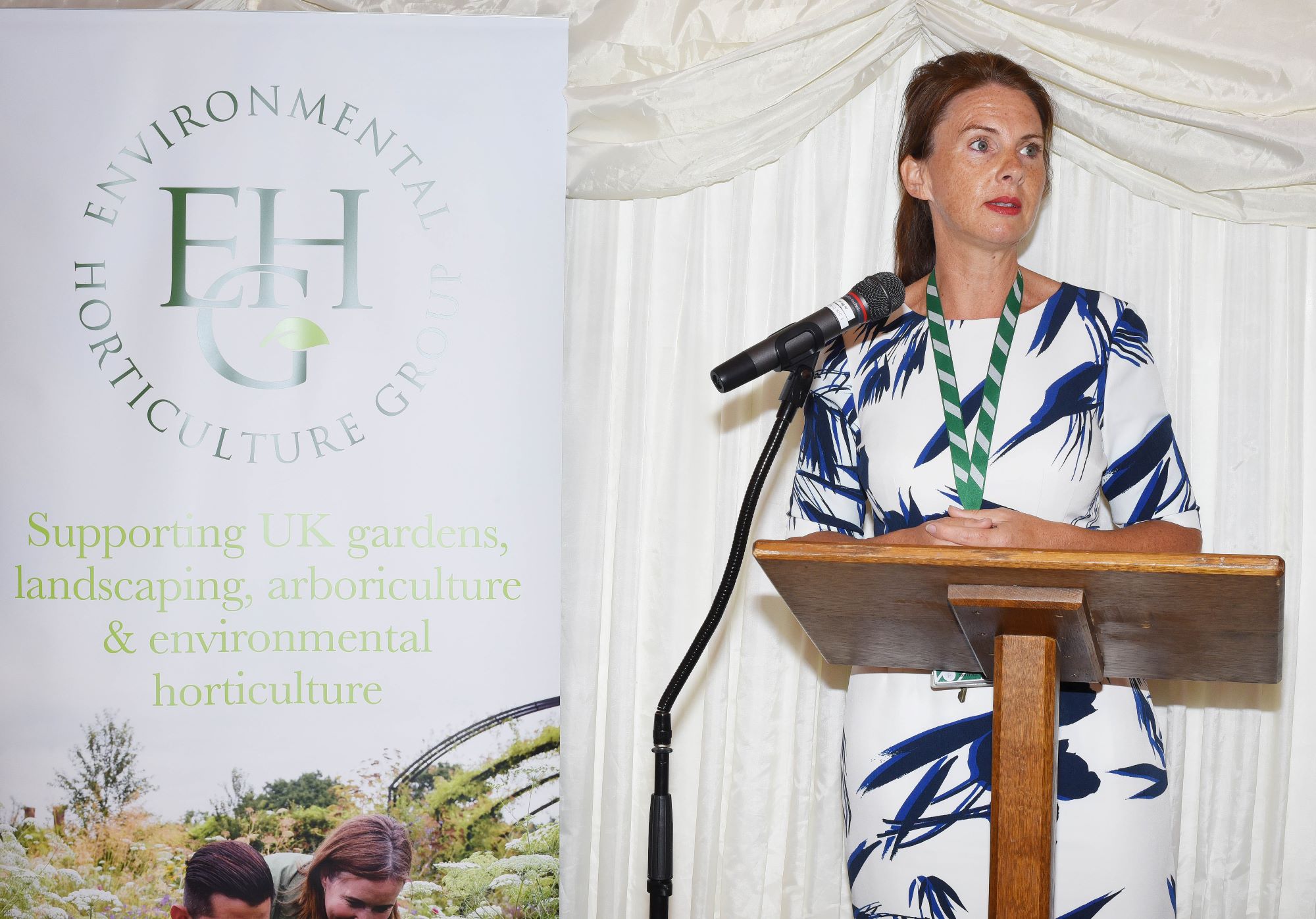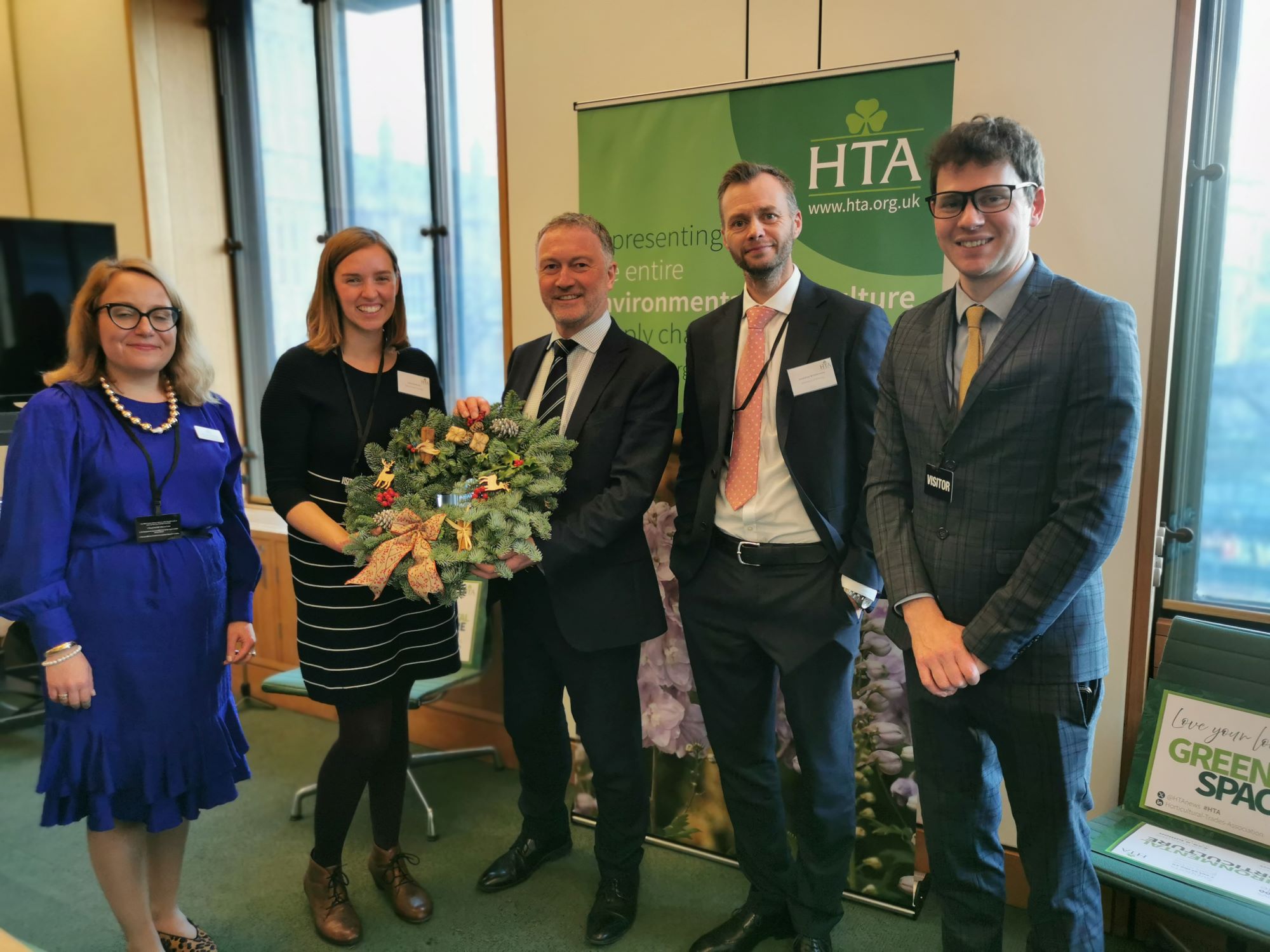The Horticultural Trades Association’s new manifesto sets out ten key priorities for a sustainable future
Former DEFRA Minister Trudy Harrison welcomes call for an Office for Green Spaces and “a bold new programme of urban greening”
 From tiny back gardens to vast public parks, environmental horticulture is a crucial part of the UK’s economic and environmental landscape. As well as contributing £28bn to the economy, the sector supports 674,000 jobs and plays a key role in underpinning the country’s environmental and net-zero goals.
From tiny back gardens to vast public parks, environmental horticulture is a crucial part of the UK’s economic and environmental landscape. As well as contributing £28bn to the economy, the sector supports 674,000 jobs and plays a key role in underpinning the country’s environmental and net-zero goals.
 Mark Spencer MP at the Horticulture
Mark Spencer MP at the Horticulture
at Christmas Parliamentary drop in
It’s against this backdrop that the Horticultural Trades Association (HTA), which represents and supports more than 1,400 garden centres, plant nurseries, growers, manufacturers, suppliers and landscapers, has set out 10 key priorities for a future UK government.
The association believes that utilising the value of plants is a key policy solution in areas such as the environment, health, skills, jobs and the economy. It is confident that with the right support, policies and funding the UK has the potential to become a global leader in environmental horticulture.
The HTA is keen to see the creation of a cross-government Office for Green Spaces, which would be tasked with maximising the value of green spaces in all aspects of policymaking and regulatory impact assessments.
 Trudy Harrison MP at a HTA reception
Trudy Harrison MP at a HTA reception
Former DEFRA Minister Trudy Harrison has expressed her support for the setting up of an Office for Green Spaces and for the priorities listed in the HTA’s manifesto.
“More than most other European countries, we in the UK are faced with a modern life health and wellbeing crisis, coupled with the undisputed and dramatic loss of nature’s habitat over recent decades,” she told PoliticsHome. “I therefore wholeheartedly welcome the HTA’s call for an Office for Green Spaces and a bold new programme of urban greening.
“It is now widely understood that gardens, parks and urban green (and blue) spaces have the potential to heal mind, body and soul whilst offering sanctuary to creatures great and small between buildings and built-up communities.
“As DEFRA’s former Minister for Nature, I have visited many nurseries and businesses operating within the horticulture sector and these opportunities and concerns are well reflected by the HTA. I support the priorities as listed and urge serious consideration and swift implementation.
“Covering nearly half a million hectares, gardens in the UK provide countless benefits for society, wildlife and the planet we all share. The sector is worth over £28bn in GDP, with huge scope to expand, and the HTA’s championing of its members – the highly skilled workforce within the environmental horticulture supply chain, ensuring 30 million gardeners continue to grow – is perfectly illustrated in their 2024 manifesto.”
 The HTA’s new Environmental Horticulture Manifesto highlights the importance of maximising the value of green spaces, delivering an urban greening programme and ensuring international trade cooperation.
The HTA’s new Environmental Horticulture Manifesto highlights the importance of maximising the value of green spaces, delivering an urban greening programme and ensuring international trade cooperation.
It also calls for a world-class plant health regime, a transition to peat-free horticulture, an emphasis on green jobs and skills recognition, a strategy for the UK water sector, regulatory proportionality, the smart use of accessible R&D and grant support schemes for SME horticulture businesses and an assurance that UK public procurement rules can be met and delivered by UK growers.
 Steve Reed MP at the Horticulture at Christmas Parliamentary drop in
Steve Reed MP at the Horticulture at Christmas Parliamentary drop in
The HTA is particularly interested in a sustainable transition to peat-free horticulture, thereby allowing the UK’s tree and plant growers to produce healthy, quality flora to meet vast commercial and environmental targets.
Peat has unique nutritional and moisture retention qualities and has been used by the sector for decades but the industry recognises the carbon absorption qualities of peatlands and has undertaken to transition to a peat-free future. Led by the HTA, the industry is now at an historic low of peat use but the association wants a future UK government to commit to peat-free horticulture from 2030.
The HTA wants the government to build on the UK-EU Trade and Cooperation Agreement by negotiating a Sanitary and Phytosanitary (SPS) Agreement with the EU and delivering a functioning cross-border trade regime for plants. The association’s manifesto says that “biosecurity and the swift and secure movement of these perishable products must be a core ambition”.
 Wendy Chamberlain MP at the
Wendy Chamberlain MP at the
Horticulture at Christmas
Parliamentary drop in
“This manifesto marks a pivotal moment for the future of environmental horticulture,” said HTA Chief Executive Fran Barnes.
“With the right support and policies in place, the UK horticultural sector has the potential to emerge as a global leader in sustainable practices and deliver green growth, ensuring that future generations can benefit from the original green industry.
"We strongly urge policymakers and prospective parliamentarians to seize these opportunities and recognise the value of our sector. We have 30 million regular enthusiasts and almost two-thirds of UK adults have a garden/outdoor space, which they report as using to cultivate plants, trees or flowers. This means gardeners in every UK parliamentary constituency.
"Supporting this growing nation of gardeners not only fuels local and national growth across the UK, but it is also a solution to adapting to our changing climate – aligning with seven of the 10 Environmental Improvement Plan goals. Furthermore, environmental horticulture contributes to the well-established mental and physical benefits derived from spending time in nature-based spaces."
Research conducted on the HTA’s behalf by YouGov in December 2023 showed that most MPs recognise the importance of the environmental horticultural industry. Eighty-two per cent agreed that the sector benefits jobs and skills, 80 per cent said that it helps the nation’s health and wellbeing, 76 per cent believed that it benefits the environment and biodiversity and 72 per cent agreed that it promotes the economy.
Read the Environmental Horticulture Manifesto here: https://hta.org.uk/manifesto
